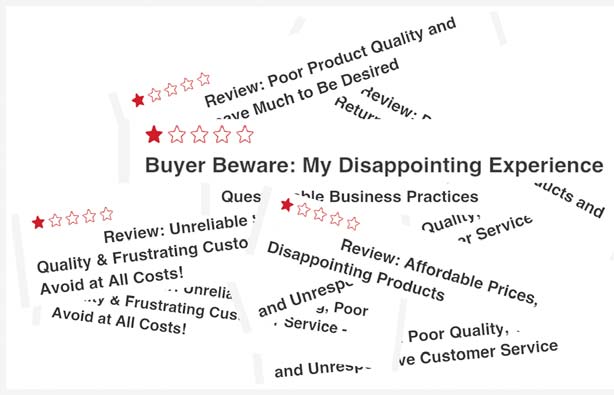With the convenience of finding desired items with a few clicks on a screen and the ease of fast cashless payments, it is no mystery why online purchases have so quickly grown in popularity among Fijians.
The question is whether those on the receiving end of a Fijian’s hard-earned money intend to deliver as promised, or at all.
While the Consumer Council of Fiji stands at the ready to handle cases of unethical vendors and dodgy dealings based locally, there is little that can be done when money has left the country and rests in the hands of a scammer oceans away.
Unfortunately, this means the responsibility falls on the public to protect themselves.
With much of our population still learning to navigate the World Wide Web, an attractive ad on a trusted website can be all it takes for even the more careful consumers to fall victim to a dishonest online store.
It seems some of those stores have caught on to this. One might be frequenting a popular local website and among the many ads for beloved local and international brands, there may be one from a store that is hopeful a user or two might purchase from them without checking their reviews.
“When purchasing from internationally based online stores, it is crucial to check reviews and feedback from other customers who have previously used the platform,” CEO of the Consumer Council of Fiji Seema Shandil said.
“These reviews can provide valuable insights into the reliability, credibility, and customer service standards of the store in question. However, consumers must also ensure that they do not fall victim to fake reviews,” Ms Shandil added.
As a general rule, it may be wise to look at the ratio of positive to negative reviews. Despite paying for fake positive feedback, it can be difficult to drown out a large and steady stream of disgruntled consumers.
A quick Google search for reviews of Cotosen for example, allegedly a Hong Kong based fashion and footwear store, will show an overwhelming number of negative reviews over multiple reviewer websites with complaints ranging from undelivered packages, sizing and item discrepancies, poor quality merchandise, misleading pictures to, perhaps worst of all, complaints of transactions being processed without confirmation.
Speaking to The Fiji Times, Ms Shandil urged consumers to remember that identifying fake reviews while shopping online was crucial for making informed purchasing decisions.
“Authentic reviews often provide specific details about the product’s features, usage, and personal experiences, while fake reviews might employ overly generic or excessively positive language.
“Additionally, checking for patterns, such as multiple reviews with similar wording or an unusually high number of reviews posted within a short time frame, can raise suspicion.”
This too is apparent in many reviews of Cotosen.com, with positive feedback often using similar wording and a seemingly similar style.
And should one be wrong or uncertain in their judgement of a store, it may still be wise to refrain from making a purchase of too large a sum.
Once a purchase has been made through an unscrupulous online store and the money has left your card, the door has been opened for the store’s customer service to employ stalling tactics until the period identified in their returns policy has passed, ensuring you never see a refund.
The public is advised to be meticulous and critical in their research of an online store prior to making any purchases.
Regardless of how appealing and user friendly a store website seems or how attractive the images are, there is no guarantee you will receive the items as they are pictured, should you receive them at all.
If a deal seems too good to be true, it probably is.



